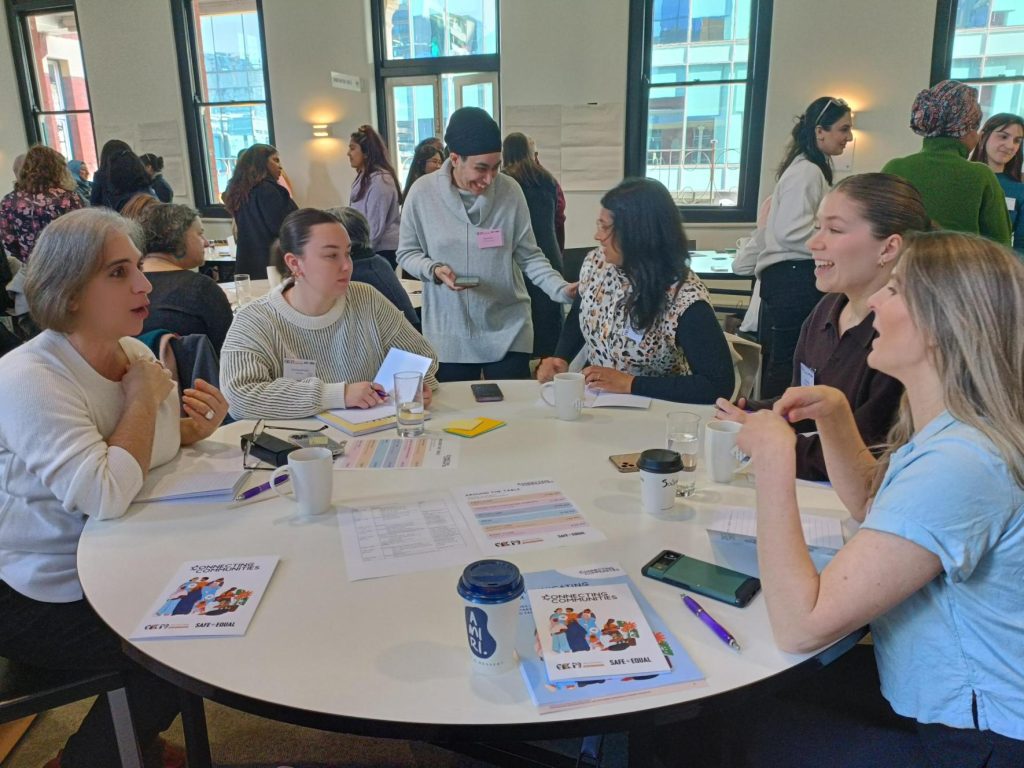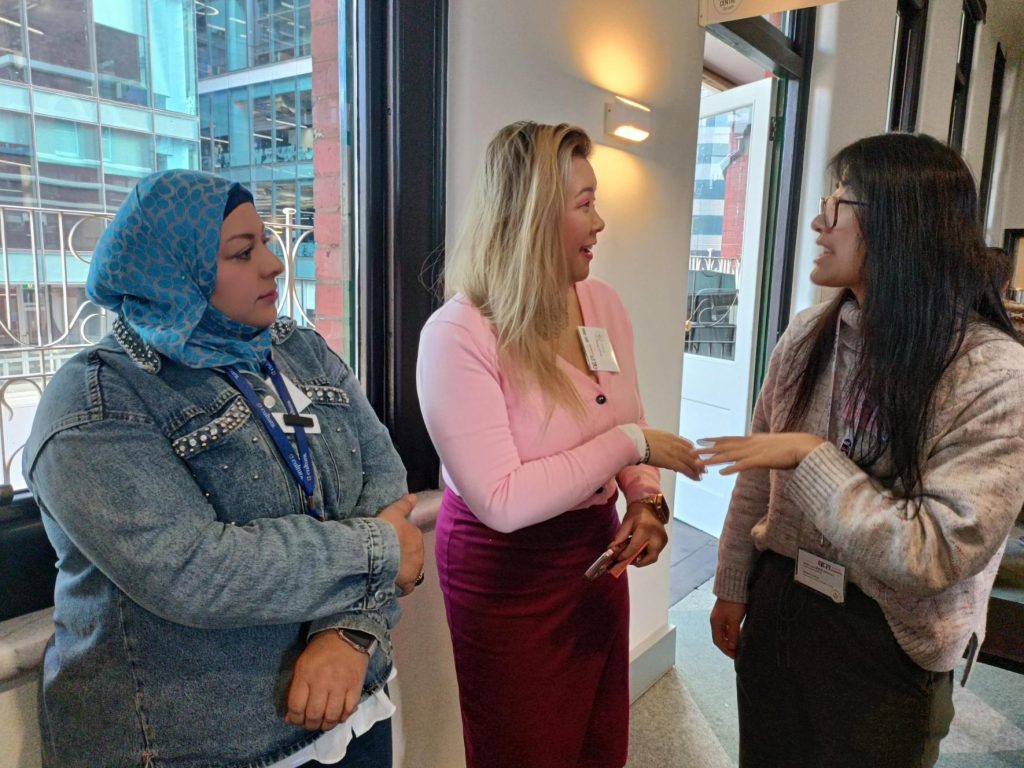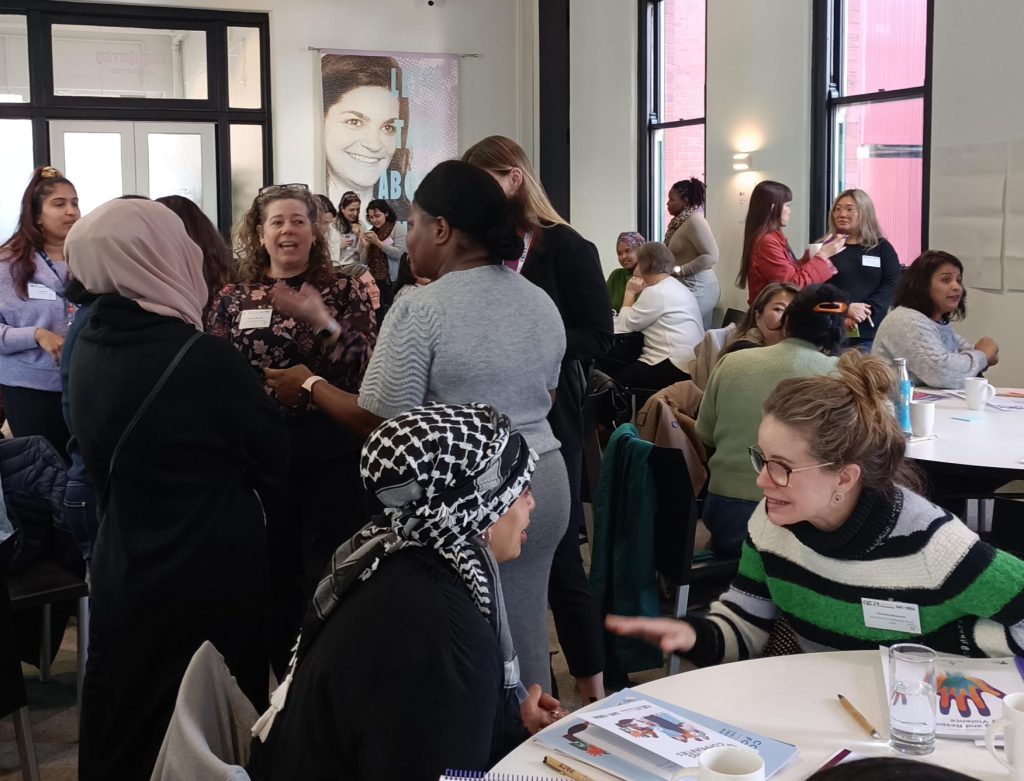
Connecting Communities is a free program of wrap-around capability building and networking activities, delivered in partnership with the Multicultural Centre for Women’s Health, for prevention practitioners who work with multicultural and/or faith-based communities.
The program includes Communities of Practice, workshops, events and other networking and peer-learning opportunities, available to recipients of the Supporting Multicultural and Faith Communities to Prevent Family Violence Grant.
Practitioners and organisations who work with multicultural and faith communities have unique strengths, knowledge, and experience. They also have unique needs, aims and challenges, which warrant tailored support and attention. Connecting Communities aims to connect practitioners with each other, create opportunities for them to share knowledge and experiences, as well as providing support and a sense of community.
Multicultural Centre for Women’s Health and Safe and Equal have partnered to deliver Connecting Communities together since 2022. Through this partnership and the Connecting Communities program, we aim to create generative spaces for shared learning, connection, and mutual care and action. This program is funded by Family Safety Victoria.
Connecting Communities resources
The Connecting Communities team have released a suite of resources, sharing and platforming the unique primary prevention practice expertise of working in and for multicultural and faith-based communities.
Why Connecting Communities is needed
Prevention practitioners who work in and with multicultural and faith-based communities have unique strengths and approaches. They may have specialist expertise, which draws on shared community experiences of resilience, survival and collective care. They also understand common community experiences of displacement, isolation and systemic exclusion, as well as culturally specific challenges involved in shifting gender norms. These strengths and approaches are all a core part of taking a community-led approach to primary prevention work.
The Connecting Communities program aims to create safe spaces bring together this expertise as a way of strengthening the evidence base for community-led prevention, and sharing key lessons and approaches with the Victorian prevention sector.
Prevention practitioners who work in multicultural and faith-based communities face unique challenges. These challenges can include backlash, racism, and resistance, which can significantly impact on practitioners’ professional and personal lives. Currently, there are limited resources or tools to support practitioners or address these challenges.
Practitioners have shared that having designated spaces for them to talk about their specific practice and structural issues is crucial for them to unpack these unique challenges, problem solve collaboratively and build solidarity across projects and communities.
Promoting gender equality and challenging racism. Multicultural and faith communities face racism, xenophobia and faith-based discrimination (e.g. Islamophobia, anti-semitism). These can’t and shouldn’t be separated from how multicultural and faith communities experience sexism and gender inequality.
Because of this, it’s important that the unique experiences of multicultural and faith communities who understand and live in this overlap directly inform work to prevent family violence – and in the case of the Connecting Communities program, that capacity and capability building for practitioners who work with these communities also reflects these dynamics and the importance of doing anti-racism work alongside gender-based violence prevention work.
What has the Connecting Communities Program done so far?
Since 2022, the Multicultural Centre for Women’s Health and Safe and Equal have worked together to co-design and deliver a number of activities for grant recipients. This has included training, a tailored workshop series, several rounds of Communities of Practice and a number of events.
The Connecting Communities team has also developed a number of resources available to the public. They include:
- The Lessons from the Connecting Communities Brief Guide series, developed to share key lessons and good practice from within the network with the broader prevention sector
- A guide to using values-based messaging to build engagement in prevention with multicultural and faith-based communities
- A case study on the partnership process and implementation behind the Connecting Communities program.
You can read more about and download these resources here
The Connecting Communities team at MCWH and Safe and Equal are excited to continue delivering the program into the future, and to continue supporting and promoting the brilliant work of network members.
To find out more, email the MCWH and Safe and Equal team at multicultural@safeandequal.org.au.
Connecting Communities is a partnership between Multicultural Centre for Women’s Health and Safe and Equal, and is funded by the Victorian Government.











